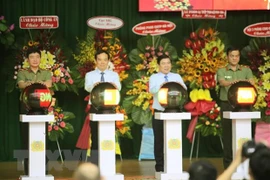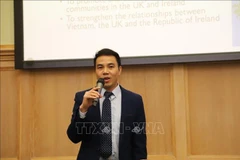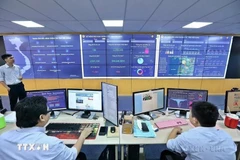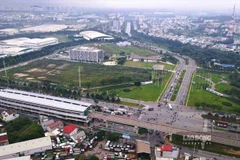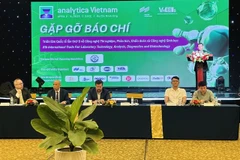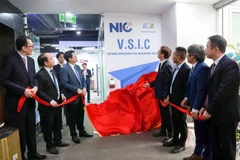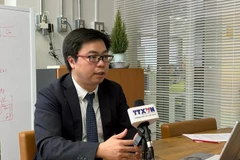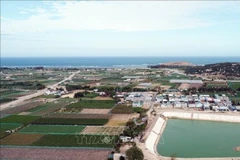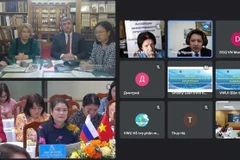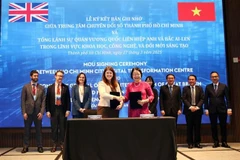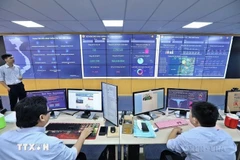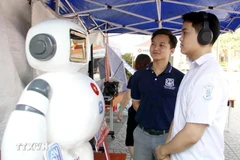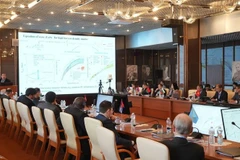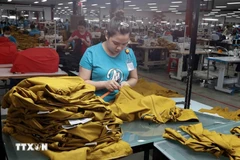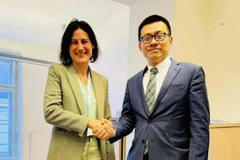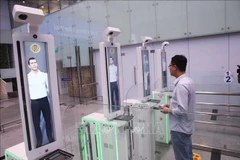Hanoi (VNA) – Vietnam’s cybersecurity landscape may face a surge in Advanced Persistent Threat (APT) attacks, online scams and the return of Distributed Denial of Service (DDoS) attacks in the second half of this year, Vu Ngoc Son, technical director of the Vietnam National Cybersecurity Technology Corporation (NCS), told Vietnamplus.
The following is the full interview:
Reporter: Could you please give your evaluation on the cybersecurity situation in Vietnam in the first half of this year?
Vu Ngoc Son: According to NSC’s statistics, Vietnam saw 5,100 cyber security attacks targeting various systems in the first half of the year, a year-on-year decrease of 12%.
However, there was a rise of around nine percent in the instances of APT attacks on critical establishments during the six-month period, which can be attributed to the abundance of vital and influential data present in such facilities, making them prime targets for hackers.
The mentioned APT attack campaigns primarily concentrated on three key attack methods, namely employing fabricated email content containing text files embedded with malicious code or deceptive login links aiming to hijack user accounts.
Others include exploiting software vulnerabilities on servers, particularly targeting systems utilizing Microsoft software such as Exchange and SharePoint.
The final method is exploiting website vulnerabilities, particularly SQL Injection vulnerabilities or attempting to breach website administrator and server passwords.
Once the hacker successfully infiltrates a system component, whether it is a user’s device or a vulnerable server, they will conceal their presence, gather login credentials, and subsequently escalate the attack by targeting additional computers within the network.
APT attacks have the potential to persist for extended periods, spanning weeks or even months.
Agencies and organisations typically lack a security operations center (SOC) or possess one that inadequately collects logs.
To prevent APT attacks, I think organisations need to review their systems, fully collect logs, and hire agencies who can make cyber threats vanish.
Reporter: What is your comment on Vietnam’s online scams?
Vu Ngoc Son: There was a surge in online scams. Although warnings have been given, the number of victims are on the rise. “High-paying easy jobs” advertisement was moved from Zalo to the Telegram platform.
 Vu Ngoc Son, technical director of the Vietnam National Cybersecurity Technology Corporation (NCS) (Photo: VietnamPlus)
Vu Ngoc Son, technical director of the Vietnam National Cybersecurity Technology Corporation (NCS) (Photo: VietnamPlus)
Scammers can easily operate on Telegram, a platform that allows them to add an unlimited number of members to a group chat. Competent authorities are not able to trace their activities once they are detected as messages and images in the group chat are easily retrieved or deleted.
With Deepfake technology, criminals pretend to be police, procuracy officers, bank and tax staff, or victims’ friends and relatives, making it hard for victims to realize they are being cheated.
The scammers exploit technological loopholes to insert fake SMS into the official message stream of popular banks (or SMS Brand names).
Thousands of clients believe in the counterfeit content and clicked on the links. The users are fooled by fake interfaces made to look the same as authentic ones. This kind of cheating has moved to the outskirts of big cities to prevent authorities from tracing them. There were no new forms but many people fell into these traps.
In my opinion, besides giving more warnings, competent authorities should take more drastic measures such as locking SIM cards and bank accounts with unverified information to ensure safety for the cyberspace.
Reporter: What are the reasons behind the fact that agencies and organisations websites were inserted with gambling and betting advertising codes?
Vu Ngoc Son: According the NSC statistics, in the first six months of the year, nearly 400 agencies and organisation websites were hacked and had gambling and betting advertising codes inserted.
The affected websites include those with domain names ending in .gov.vn and edu.vn, which signify a website belonging to organisations and agencies under the Government or the Ministry of Education and Training.
This is an alarming figure as hackers not only insert advertising links but also exploit system control to pilfer the database, which includes users’ personal information, then they potentially upload harmful content to distribute malicious code in the future.
I think it is time for organisations and agencies to seriously review their portals, and arrange experts to ensure cybersecurity.
Reporter: What are your forecasts for Vietnam’s cybersecurity in the remaining months of this year?
Vu Ngoc Son: Online scams and attacks are expected to continue.
People should stay vigilant with the return of DDoS attacks as Microsoft’s Azure outages in June 2023 caused by a DDos Attack was a vivid illustration that hackers are now powerful and own a large number of bottnets – networks of hijacked computer devices used to carry out various scams and cyberattacks.
Reporter: Thank you for spending time with us!./.




